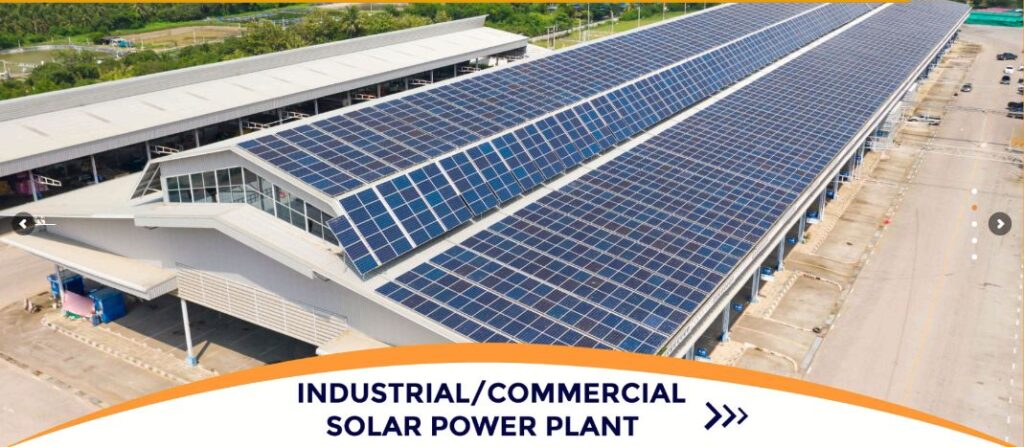






| Solar Energy System |
Residential Solar Power Plant | Industrial Solar Power Plant | Commercial Solar Power Plant

A commercial solar installation refers to the setup of solar energy systems on commercial properties or businesses to generate electricity from sunlight. These installations are larger in scale compared to residential systems and are designed to meet the energy needs of commercial buildings, offices, factories, warehouses, and other non-residential structures.
Here are some key aspects of commercial solar installations:
- Sizing and Design: Commercial solar installations are typically larger than residential systems and require careful sizing and design to meet the energy demands of the commercial property. Factors such as available roof or ground space, energy consumption patterns, and local regulations need to be considered during the design phase.
- Components: Similar to residential systems, commercial solar installations consist of solar panels, inverters, mounting hardware, and optionally, battery storage systems. However, the number of panels and inverters is typically much higher to accommodate larger energy needs.
- Grid Connection: Most commercial solar installations are grid-connected, meaning they remain connected to the utility grid. Excess electricity generated by the solar panels can be exported to the grid, and electricity can be imported from the grid when solar generation is insufficient.
- Financial Considerations: Commercial solar installations can provide significant cost savings over time by reducing electricity bills and potentially providing additional revenue streams through incentives such as feed-in tariffs or renewable energy credits. Businesses may also benefit from tax incentives and accelerated depreciation for solar investments.
- Long-term Benefits: In addition to cost savings, commercial solar installations offer long-term benefits such as energy independence, reduced environmental impact, and enhanced corporate social responsibility by demonstrating a commitment to sustainability.
- Maintenance and Monitoring: Like residential systems, commercial solar installations require regular maintenance and monitoring to ensure optimal performance and longevity. This may include cleaning panels, inspecting components, and troubleshooting any issues that arise.
- Regulatory Compliance: Commercial solar installations must comply with local building codes, zoning regulations, and utility interconnection requirements. Permitting and approval processes may vary depending on the jurisdiction and the size of the installation.
Overall, commercial solar installations offer businesses an opportunity to reduce operating costs, demonstrate environmental leadership, and contribute to a more sustainable energy future. Working with experienced solar developers and installers can help businesses navigate the complexities of solar implementation and maximise the benefits of solar energy.